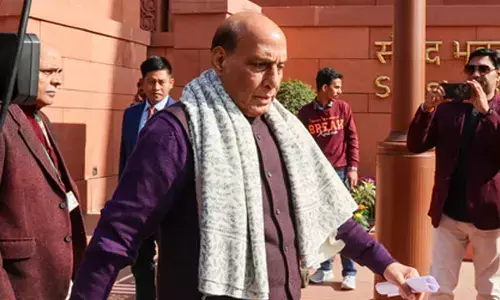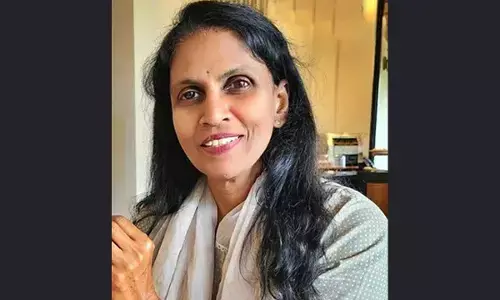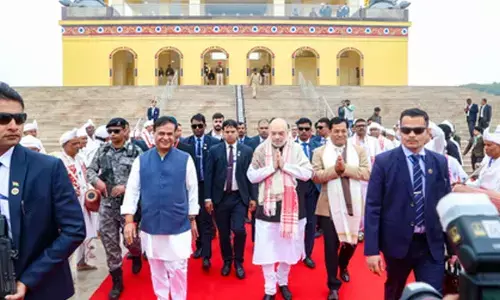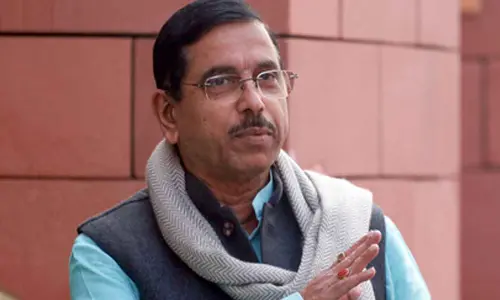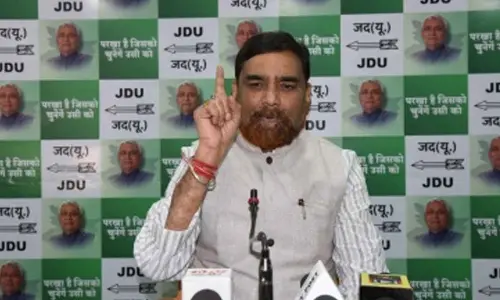Emerging political chemistry

India is preparing for phase of Assembly elections that have a potential to impact the 2019 Parliament elections. New political alignments are taking shape.
India is preparing for phase of Assembly elections that have a potential to impact the 2019 Parliament elections. New political alignments are taking shape. Inspired by the success of grand alliance, Mahagathbandhan in Bihar, the Congress seems to be ahead of its arch rival BJP in forging electoral alliances.
The latest in the series of possible new political alignments is the Congress– DMK tie-up to face indomitable Jayalalithaa. The wounds of UPA tenure seem to be healing as the two parties come together. Even in Bengal, the unexpected seems to be shaping into reality.
The CPI(M) and the Congress are inching towards a historic pre- poll arrangement to take on the despotic regime of Mamata Banerjee. The CPI(M) and the Congress leaders are talking of an alliance conveniently forgetting the nightmare of Emergency.
The CPI(M), which in its recent party congress decided to go alone, is now preparing its cadres for possible electoral chemistry to dislodge TMC rule. Many more alliances would certainly be unveiled.
The fractured verdicts and fragmented polity are making political alliances an inevitable phenomenon. The demise of national party system, emergence of strong regional forces and parties increasingly woven around individuals have heralded the phase of coalition politics. One may call it political expediency. Critics may label it as opportunism. But, pragmatists view it as a reality.
Unfortunately, the emerging political alignments are primarily aimed at coming to power or keeping their common enemy at bay. Instead, a coherent pro-people social and economic programme defining political alliances would augur well for Indian democracy. But, that seems to be a tall order.
At a time, parties are increasingly devoid of any ideology, programmatic political alignment is a mirage. But at least, parties should agree for a common minimum programme (CMP) to present before the electorate to facilitate people to take a call. Such a CMP should guide the government if that alliance is voted to power.
A pre-poll alliance without any common election manifesto or a post-poll arrangement will not give stability to the political process. But critics refer to the cracks in an ideologically cohesive alliance of BJP –Shiv Sena to refute the argument of the so-called ideological affinity cementing political alliances. It may be true.
But such examples are an aberration driven by local political interests and the personal ambitions of leaders. On the contrary, BJP- Akali Dal alliance is an enduring one though there is no such ideological affinity between the partners. The Left-led fronts in Kerala, Tripura and West Bengal are illustrations of ideology defining alliances.
Thus, there seems to be no pattern to explain the experience of Indian coalition politics. But, the long-term sustainability of political process is ensured only through programmatic alliances.
Coalitions are nothing new to India nor are they unique to India. Even the advanced democracies continue to witness election-eve political arrangements. In a multiparty system that too in a pluralistic India, such a transition in political process is understandable. But, the question today is how such marriages of convenience should last long to ensure that these emerging alliances do not subvert people’s mandate.
Woman injured in stabbing attack in Tokyo, suspect at large
Bengal cop booked for murder over mysterious death of woman home guard, SIT to probe case
Staffer recalls horror of 7-kg gold robbery by armed gang in Karnataka’s Hunsur
25-Year-Old Airline Cabin Crew Member Dies At Gurugram Party; Police Begin Investigation


